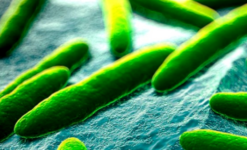Food products are consumed for a feeding purpose or for the benefit of health maintenance and wellbeing. They are composed of nutrients (such as proteins, carbohydrates, fats, fibres, sodium, vitamins and minerals) and/or of other substances with a nutritional or physiological effect, such as botanical substances. They may also contain food additives used for technological purposes.
Nutraceuticals are specialized food products specially formulated in view of fulfilling specific nutritional or physiological purposes. Some are specifically formulated to meet the needs of specific population groups. Others, based on a specific formulation or on demonstrated effect(s), they can claim their particular characteristics through nutrition and health claims. Foods can provide non-therapeutic health benefits such as reduction of a risk factor in the development of a disease or significant content of a substance related to the growth, development and normal functions of the body. Some categories of nutraceuticals belong to dedicated regulatory statuses such as dietary/food supplements, foods for special medical purposes (= Medicinal Foods) or foods for specific populations such as infants.
Foods may be innovative because they contain or are derived from new components (e.g. insect, microorganisms, engineered nanomaterials) or because they result from new production processes. Where no significant history of safe use in a specific geographical arena ca be demonstrated, their safety for human consumption may be requested to be demonstrated before they are put on the market (Novel foods, New Dietary Ingredients).
MICROBIOME FOOD PRODUCTS
Innovative foods products are being developed for maintenance of a healthy gut microbiome. This can typically be achieved through consumption of nutrients promoting the growth of beneficial microorganisms, such as some types of non-digestible fibres (‘prebiotics’), or through direct intake of live microorganisms having a beneficial effect on their consumer (‘probiotics’).
The regulatory framework for microbiome products is not harmonized at the EU and global scale, and also encompasses the therapeutic regulatory field. See our microbiome page for more information on these specific products.
Key challenges encompass:
- Determination of eligible and appropriate regulatory status (Supplement, Medical food, other food with health claims), justification towards national authorities;
- Establishing safety of New Ingredients and Novel Foods;
- Define claims eligibility, extent and wording;
- Design of clinical trials to support new health claims
VCLS Solutions
Science-based, global product development strategy and planning
- Identify path to the market and pertinent regulatory requirements
- Define optimal regulatory strategy for successful international market entry taking into consideration potential different regulatory requirements depending on targeted local markets
- Ensure compliant strategies for labeling and promotion materials
- Prepare and submit applications and notification dossiers in key global markets
Novel food and novel food ingredient
- Justify non-novel food or food ingredient classification
- Construct appropriate regulatory dossier
- Establish strong rationale for safety of Novel foods
Nonclinical and Clinical Development
- Define appropriate clinical development program
- Correct definition of study population and clinical end-points
- Assist with protocol design for animal and human studies
Nutrition and Health Claims
- Determine appropriate nutrition and health claims development strategies
- Develop pertinent product claim dossier
- Submit dossier towards competent authorities




